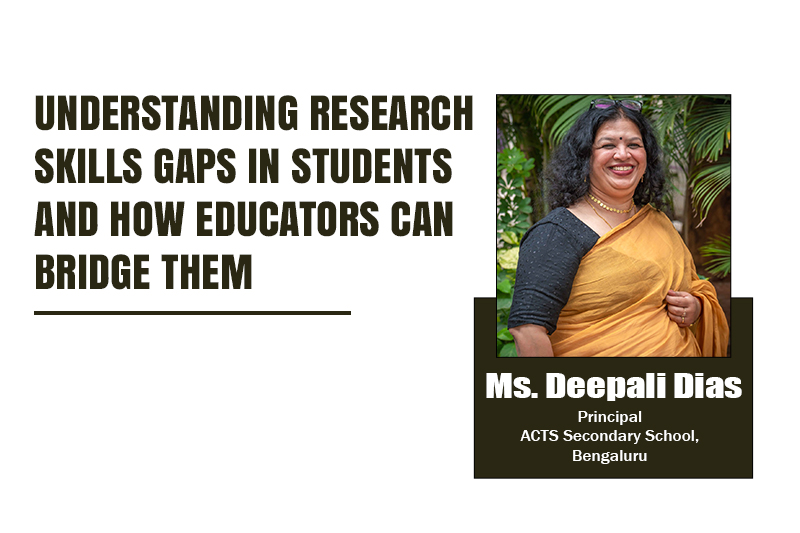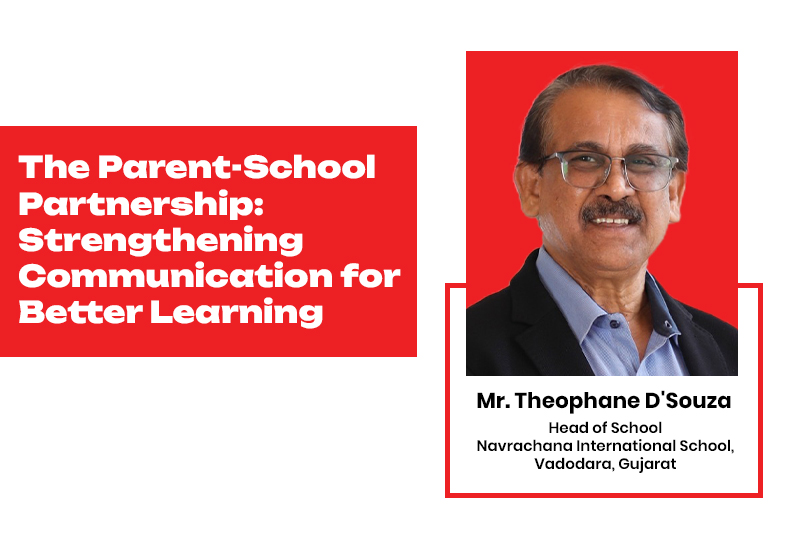Ms. Meghana Gorukanti Jupally, Meru International School: Leading AI-Driven Change in Education
“AI frees educators to focus on teaching and mentoring—the heart of learning.”
In a time of rapid education evolution, Ms. Meghana Gorukanti Jupally, Founder of Meru International School, Hyderabad, is setting a transformative benchmark. Her leadership is driven by a clear conviction: that technology, when integrated thoughtfully, can restore the soul of education by amplifying what teachers do best—mentoring, guiding, and inspiring.
Since founding in 2018, Meru International School has grown into a vibrant learning ecosystem embodying rigor, innovation, and empathy. Under Ms. Jupally’s guidance, the institution has adopted a bold, future-forward approach that blends academic excellence with purposeful learning, encouraging students to become thinkers, creators, and socially aware citizens.
Her perspective on education is enriched by a diverse professional background that extends far beyond the classroom. A strategic leader with over 15 years on the board of Yashoda Hospitals, she has helped shape one of India’s most respected healthcare institutions. Simultaneously, her strategic involvement with ventures like AHA (OTT platform) and My Home Constructions has refined her business acumen and leadership agility.
This multi-sectoral perspective informs her understanding of education not just as a system for instruction but also as a powerful vehicle for social transformation and personal growth.
The AI Inflection Point in Education
We are at a moment of convergence, where Artificial Intelligence (AI), once theoretical in the classroom, has become both practical and powerful. Ms. Jupally recognizes that for years, meaningful school improvement was held back not by a lack of vision or talent, but by time constraints placed on teachers.
Today, AI has matured to the point where it can take on low-impact, time-consuming tasks, freeing educators to engage in high-impact human connections with students. For Ms. Jupally, this shift is not a disruption; it's an opportunity.
“AI should never replace educators. It should liberate them,” she notes. “When machines handle the mundane, teachers can focus on what matters—teaching, mentoring, and building relationships.”
Her vision is one where AI serves as an ally—a tireless assistant who elevates classroom instruction and enhances each child's personalized learning journey.
Three Transformative Ways AI Can Be Integrated Today
Ms. Jupally identifies three actionable and impactful ways schools can immediately begin leveraging AI in everyday classroom settings:
1. Hyper-Personalized Practice, Delivered Overnight
Teachers often spend hours designing differentiated assignments tailored to the individual needs of each student. AI can now automate this. AI systems can create customized practice materials in a matter of hours by analyzing data from classroom quizzes, assignments, and discussions.
A simple prompt—
"Design 10 geometry questions to address errors Rishi made in his formative assessment; tag them by Bloom’s level"—
Can generate practice sheets aligned to the learner’s precise skill level and cognitive stage.
The result? Every child engages with content that is neither too simple nor too overwhelming. The "zone of proximal development" becomes a reality, ensuring learning is always meaningful, motivating, and appropriately challenging.
Teachers remain in control of tone and context, but are spared the exhaustive task of curation, allowing more time for feedback, mentorship, and reflection.
2. Instant, Competency-Tagged Feedback on Student Work
Grading essays, short answers, and subjective responses is one of the most time-consuming parts of a teacher’s role. With AI-powered natural language processing and computer vision, this can now be accelerated without compromising quality.
These tools assess written responses, tag errors by concept, and provide competency-based feedback, such as “incomplete understanding of cause-effect in historical analysis.” Teachers can quickly review, approve, or adjust the AI’s feedback, significantly reducing turnaround time.
This shift allows for faster intervention, increased learner engagement, and most importantly—more meaningful teacher-student dialogue.
3. Socratic AI Tutors for After-School Support
After-school hours are often underutilized for students, especially those hesitant to ask questions in class. When built within secure, controlled environments, AI-powered Socratic chatbots can serve as 24/7 companions.
These chatbots are not just answer dispensers. They engage learners with counterquestions, encourage reflection, and promote reasoning. Students learn how to think, not just what to think.
Research shows that short, guided daily interactions with these bots can improve knowledge retention and student confidence, especially among quieter learners.
Such platforms also collect insights, helping educators better understand student learning patterns, informing future lesson planning.
Redefining the Teacher’s Role in an AI-Augmented World
While AI offers new possibilities, Ms. Jupally emphasizes that it cannot—and must not—replace teachers. Instead, it must reposition teachers as mentors, creators, and guides.
To truly benefit from AI, schools must embrace a set of core principles:
- Data Privacy First: All student data must be encrypted, anonymized, and stored securely with parental consent.
- Human-in-the-Loop: Teachers must retain final decision-making authority over feedback, grading, and instruction design.
- Upskilling Educators: Regular “AI Studio” sessions should be embedded in school culture to explore prompts, share best practices, and discuss the ethical implications of AI.
- Student AI Literacy: Learners should be taught to verify AI outputs, understand algorithmic bias, and use tools with academic integrity.
A Glimpse into the Future: AI-Infused Learning Environments
Looking ahead, Ms. Jupally envisions AI-powered dashboards that monitor classroom engagement, tools that detect emotional cues from student interactions, and voice recognition systems that provide real-time pronunciation coaching.
But even in such advanced scenarios, she is unequivocal: AI must be a servant of pedagogy, not its substitute. The spark of learning—the warmth of a kind word, the excitement of a eureka moment, or the subtle reassurance of a teacher’s encouragement—remains innately human.
Conclusion: Amplifying Humanity Through Technology
Ms. Meghana Gorukanti Jupally’s vision for AI in education is not about automation but augmentation. She views technology as a scaffold that enables teachers to reach higher, students to extend their reach, and schools to deliver more personalized, ethical, and impactful learning experiences.
Her leadership provides a forward-thinking and grounded model in the evolving education landscape. With her guidance, Meru International School is charting a path where human values and technological innovation coexist.
“Let machines manage the mundane,” she often says, “so that educators can return to the heart of learning—guiding, mentoring, and inspiring.”
As schools across India and beyond look to integrate AI, Ms. Jupally’s approach serves as a beacon: measured, mindful, and deeply rooted in the transformative power of teaching.
Want more thought-provoking articles like this? Check out EducationToday – where education meets innovation.






